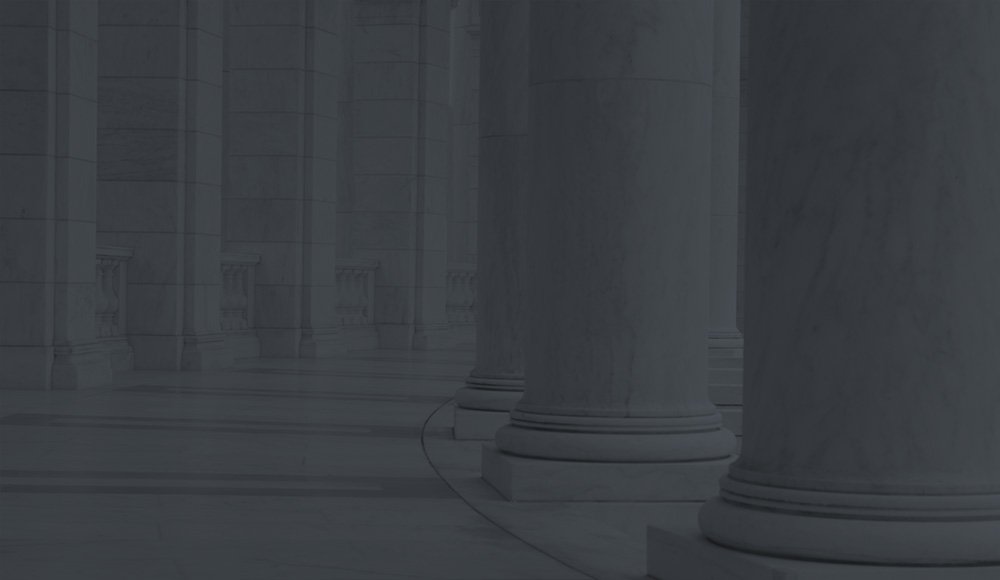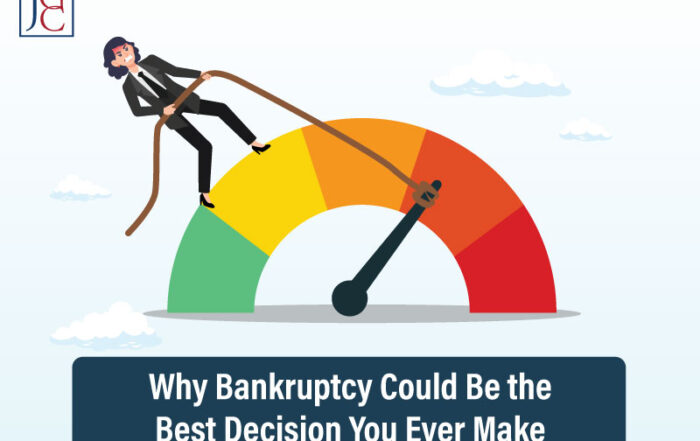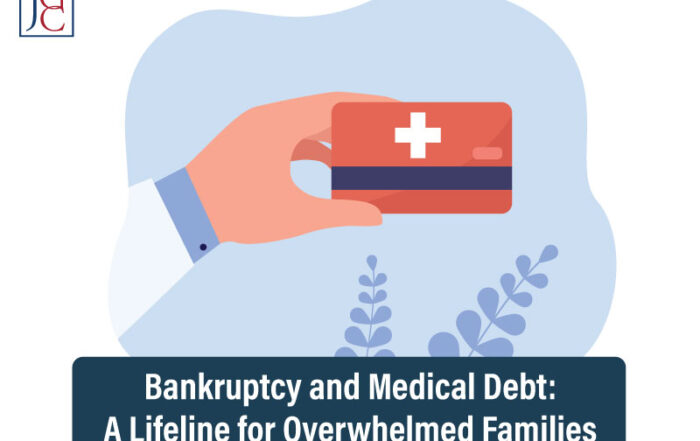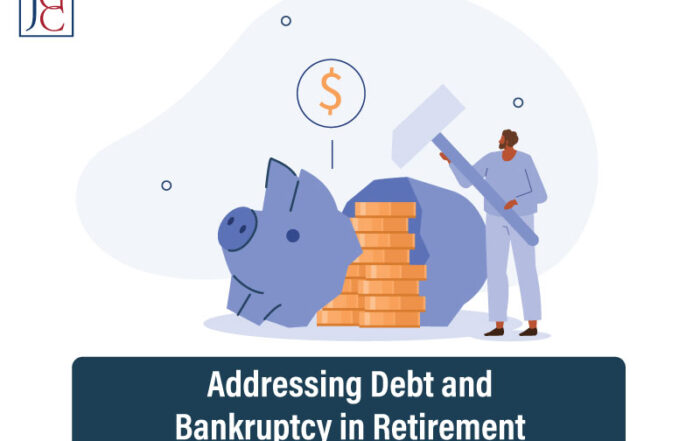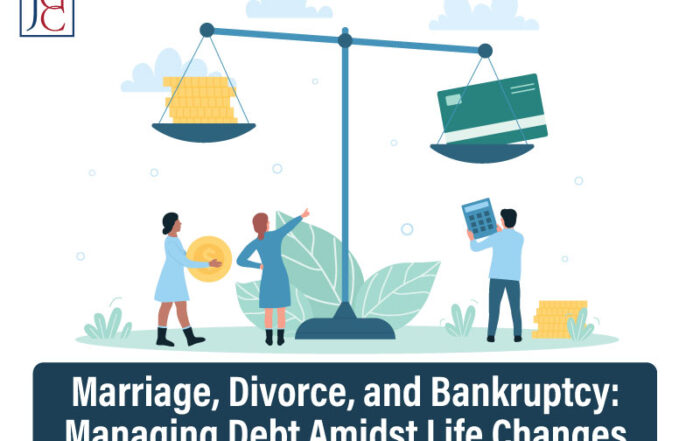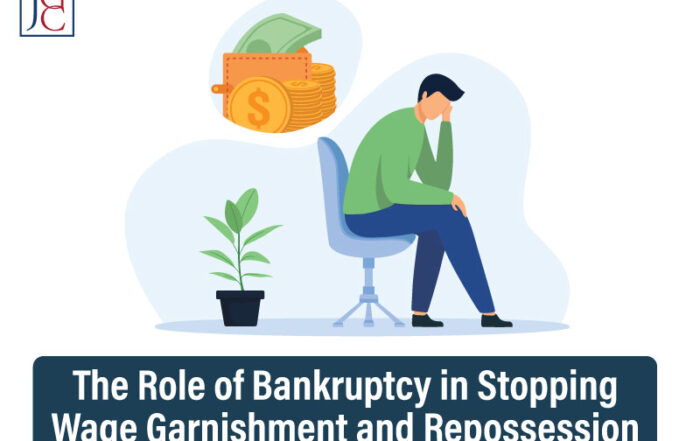1700
TRUSTED CLIENTS
98%
SUCCESSFUL CASES
$190,000,000
ASSETS SAVED
2133
LOAN MODIFICATIONS
1700
TRUSTED CLIENTS
98%
SUCCESSFUL CASES
$190,000,000
ASSETS SAVED
2133
LOAN MODIFICATIONS
Chapter 13 Bankruptcy FAQ
In a Chapter 13 generally speaking, a client is in bankruptcy for 36 to 60 months. There are exceptions to that rule certainly, and there are times when we’re a Chapter 13 strategically where someone’s only going to be in it for 12 months. Generally the difference is you’re receiving your discharge of bankruptcy after 36 to 60 months.
For some people, practically speaking, that can be a short term impediment. There’s certainly some workarounds. One is that if it’s a married couple and one spouse is filing and one isn’t, then you get someone to make you an authorized user, or you find a friend or someone who can make you an authorized user in the short term. That’s common.
Chapter 13 Bankruptcy Attorney
Reasons people file Chapter 13
The old fashioned reason
Let’s say you were out of work for a couple months, you were able to put food on the table, pay your electric bill, pay utilities, but you feel behind on credit cards and you fell behind on your mortgage. You’re three, four, six months behind on your mortgage. You don’t have the money to get current in a lump sum. By filing Chapter 13 bankruptcy, the bank has to consider you current on your mortgage again. You catch up on your mortgage arrears over a period of three to five years and resume making regular mortgage payments.
You make too much money to qualify to Chapter 7
Making too much money to qualify for a Chapter 7 Bankruptcy is very case specific. The Internal Revenue Service publishes guidelines income and expense guidelines. It is by state. New Jersey has the second highest cost of living in the nation next to Connecticut. I had a client not so long ago that on paper makes $180,000 a year base. You assume this person is a Chapter 13, they have to pay back debt. Once I peel back the layers and realize that he’s paying alimony, child support, and has obligations to educate his children, immediately all of these different deductions put him right back into Chapter 7.
The threshold to whether you qualify for a Chapter 7 or Chapter 13 bankruptcy is based on disposable income. That’s set under the Means Test. When I find people earn too much to file a Chapter 7 bankruptcy, it’s usually a household of two with no children or dependents.They make over this median amount proscribed by the IRS, which for two people, say it’s $75-78,000. They’re substantially over it, they’re making like $120-130,000, they’re going to have to pay some debt back. That’s okay. That would be a reason for a 13.
Facing Foreclosure
The foreclosure date is set, it is happening. It’s going to happen next week. It’s going to happen in two months. I know in that case, that’s my loan mod bankruptcy. I’m going to file a Chapter 13 Bankruptcy case, I’m going to stop the foreclosure, we’re going to go forward on that loan mod, we’re also going to clean up any credit card debt that the person has, and all these sorts of good things.
Back Taxes
Another reason for filing a Chapter 13 is a person that owes back taxes. These are taxes that cannot be forgiven in bankruptcy. We’re going to save discharging taxes in bankruptcy for another day. Maybe they had a business that was closed. Maybe the IRS won’t work with them at all. They want a payment plan, they want to be able to repay these without the substantial penalties still accruing. Maybe the IRS has frozen their assets or done a tax lien? Chapter 13 is a mechanism to pay these off over 36 to 60 months and get out from under that tax debt.
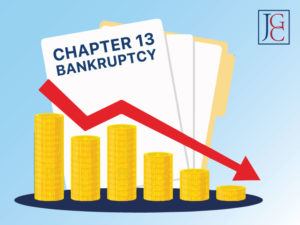 Forgiveness of a Second Mortgage or Home Equity Loan
Forgiveness of a Second Mortgage or Home Equity Loan
Someone owes more on their first mortgage than the property is worth after I get a certified appraisal, there’s no equity in the property or enough equity to pay off the first mortgage in full. I can propose in a Chapter 13 that their second mortgage, home equity line, third mortgage, however many loans/liens in line after the first mortgage be treated like credit card debt in the Chapter 13 Bankruptcy. These loans are forgiven after a Chapter 13 Plan is completed and the discharge of bankruptcy is received. Then I do the work to get an order from the bankruptcy court to the Hall of Records and record it so that my client has a clean chain of title free from these mortgage liens discharged in bankruptcy.
Sometimes I have clients that would otherwise qualify to be a Chapter 7. They see it is in their best interest to be a Chapter 13 because not only are they going to get a discharge on their unsecured debts, such as credit card debts and personal loans, but by being in bankruptcy for three years, they’re going to get out from under a second mortgage. That’s great.
Pending personal injury suit or a medical malpractice lawsuit
Let’s say, client was injured before their bankruptcy was filed. There is a pending personal injury suit or medical malpractice suit. A lawsuit could take four years. In the meantime, this client is drowning in debt. They have creditors calling … not only are the creditors calling, they have judgment creditors, they’re getting sued, they have wage executions. They don’t know what to do. There are certain amounts of money in a personal injury lawsuit that you can exempt or protect, and then a certain amount that would go to creditors. If you have a pending personal injury or other suit, and a Chapter 7 is filed, that becomes property of the bankruptcy trustee. When it becomes property of the bankruptcy trustee, essentially you would get the amount that you’re entitled to exempt. Then the trustee takes a commission, hires their own law firm and disperses to creditors. That’s a lot of money for them to administer that. After that, if there’s any money leftover, you get it.
In a Chapter 13 case, we know that your creditors might get something, but the fees are capped. We can use it strategically to stop collection efforts and protect as much of a settlement as possible. When a client has those suits, certainly I’m using a Chapter 13.
Already filed a Chapter 7
8 years must pass between Chapter 7 Bankruptcy filings. If you filed a Chapter 7 Bankruptcy within the past 8 years and need assistance with a new bankruptcy filing, you are eligible to file a Chapter 13 Bankruptcy. Keep in mind that in Chapter 13 Bankruptcy, repayment to creditors can be as little as $125.00 per month.
Stop a Sheriff’s Sale
Filing a Chapter 13 to stop a sheriff’s sale. If you’ve exhausted your rights and remedies in the state court, a Chapter 13 Bankruptcy stops a sheriff’s sale. Then, I work on a loan modification through the bankruptcy court’s Loss Mitigation Program.
Substantial Equity in a Home
Let’s say that a particular client has $40,000 in credit card debt, they know they’re going to have to pay it back and have been unable to make a dent in it. They tried debt management, it didn’t work, they’re being sued by a creditor. Instead, the Chapter 13 is going to allow them to pay back their debt without interest or fees, and it’s guaranteed that as long as they can afford the trustee payments. They can get out from under that debt in a period of time. I have a lot of clients that use Chapter 13 to protect home equity and pay back debt without interest or fees.
It may not be easy initially to come to terms with the fact that based on your case, you have to pay back some or all of your debts. Once you accept that you have to repay debt, the Chapter 13 process from the client’s perspective should be easy. The payment is made online to the bankruptcy trustee, You go online, you make that payment once a month. You can track every creditor, who’s getting paid, and how much they’re getting paid. So simple.
LATEST NEWS & TESTIMONIALS
Emergency Bankruptcy Filings: When Time Is of the Essence
As a bankruptcy attorney in New Jersey, I frequently encounter situations where individuals face imminent financial crises such as [...]
Why Bankruptcy Could Be the Best Decision You Ever Make
As a bankruptcy attorney, I frequently encounter clients who hesitate to file for bankruptcy because of misconceptions about what [...]
Bankruptcy and Medical Debt: A Lifeline for Overwhelmed Families
As a bankruptcy attorney, I frequently meet clients who find themselves struggling with debt they never anticipated. Perhaps most [...]
Addressing Debt and Bankruptcy in Retirement
Retirement should be a time of peace and security, a period to enjoy the fruits of many years of [...]
Marriage, Divorce, and Bankruptcy: Managing Debt Amidst Life Changes
Navigating life changes such as marriage and divorce involves not only emotional adjustments but also significant financial considerations. [...]
The Role of Bankruptcy in Stopping Wage Garnishment and Repossession
Facing wage garnishment or the repossession of your vehicle can be distressing experiences, particularly when you’re already struggling with [...]
Great experience!
Johnathan has been supportive, attentive, and available. Of course, he is also super knowledge and trustworthy. He made me feel really good about the difficult decisions.
I would highly recommend Jonathan.
Best Damn Lawyer in Monmouth County
Whenever I need advice Johnathan takes the time to reply to emails or phone calls. He’s very knowledgeable about the law, patient and professional.
Excellent Lawyer.
Jonathan Goldsmith Cohen, is an excellent lawyer in the laws of bankruptcy, made the process much simpler, by helping in every step of the process, and answering all of my questions.. He helped me with difficulty bankruptcy, and I highly recommend.
REQUEST A FREE CONSULTATION
Fill out the form below to receive a free and confidential initial consultation. Or call:
732-737-7985



